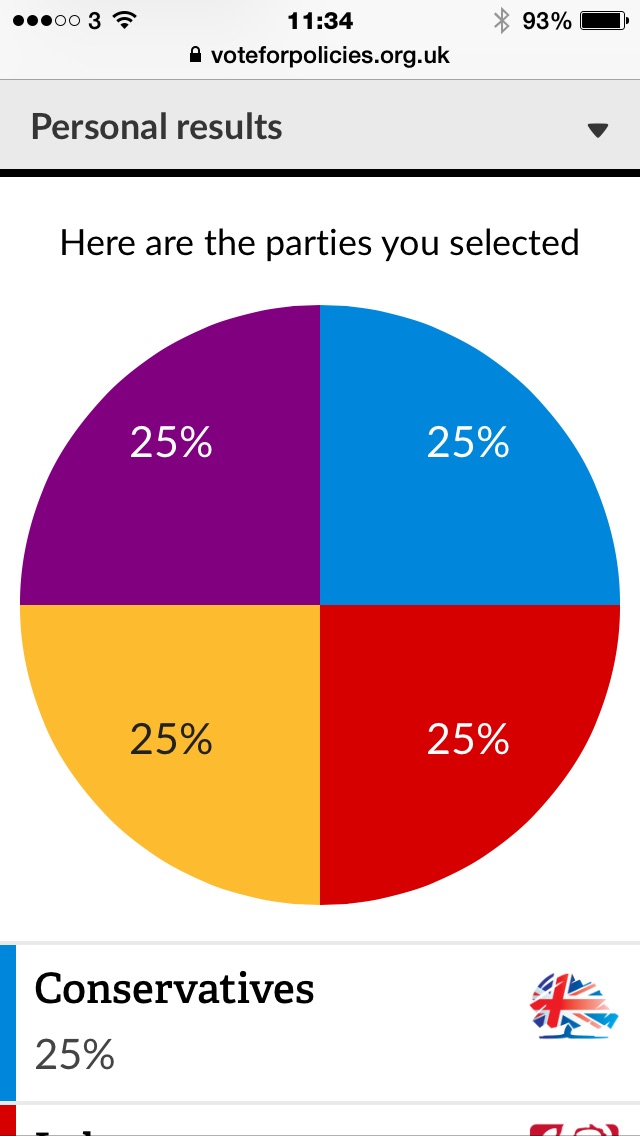barcode wrote:Really? In the Scottish Local council elections, Labour clicked on fast how to work the system...
On polling day told 50% of people to put Lab Can A first and Lab Can B sencond, and the other 50% the other way round. Thus labour won the most since both Top canadiate where had roughly the same number of votes.
Hence the reason Labour were able to take higher % of seats compared to % of votes, how do you think Labour were able to take back alot of councils in 2012?
OR have I got this wrong ?
Scottish Local Elections usually have a result which is nearly proportional, Labour only had 0.8% more seats allocated than votes won. In 2012 the SNP won anyway and the seats that Labour won back were mainly ex-Tory or Lib Dem which suffered because A - it was a mid-term local and they are in government and B - the Lib Dems are now as popular as Thatcher in Scotland.
Also under STV it wouldn't matter if Labour had told all their voters to put Candidate A first and Candidate B second as if every Labour voter did that, Labour would win both of these seats as that is how STV works. Your presumption there is based on the unlikely notion that people are going to perform uniformly and do what a PPC tells them to do. Many people may have put a Labour Candidate first and then an SNP candidate second, just because there are two Labour candidates on a list doesn't necessarily mean that they would pick Labour and then Labour, let me try and explain...
Say a four member constituency in an ex-Mining area in the North of England had the following choice of candidates.
Tony Blair - Labour
Tony Benn - Labour
Dennis Skinner - Labour
Arthur Scargill - Socialist Labour Party
Margaret Thatcher - Conservative Party
Harold MacMillan - Conservative Party
etc.
STV gives the voter the opportunity to select a candidate on personal policy rather than party policy, hence a traditional Labour voter may place Benn, Skinner, Scargill and MacMillan ahead of Blair as they are more likely to vote according to the voters own politics. Thus under STV the voter doesn't simply rank Labour candidates in order of preference but ranks the candidates on who most closely represents them. Also it allows voters to pick representatives from different parties if they like one parties policy on one thing and one policies party on another - if you liked the NHA policy on the NHS you could rank them first and then if you like the Greens policy on education you could rank them second as MMCs do not give you majority and so thus force parties to work together.
Anyway, theoretically STV and all other forms of PR get rid of safe seats as it would require you to get a ridiculously high share of the vote in order to win all the seats. Obviously you do get areas such as Belfast West which end up giving you 5 Sinn Féin MLAs out of 6 but in multi party marginals it enables you to get a diverse range of parties in one area whereas previously one party would dominate.
Take Greater Manchester - there are 27 seats and under FPTP Labour won 81.5% of them despite only getting 41% of the vote. They got almost exactly twice the number of seats than they proportionately should. That means the 59% of Mancunians who didn't vote Labour only get 18% of the cities MPs. Under STV a 27 seat Manchester Constituency would give Labour around 13 seats and therefore allow the other half of Manchester to get some representation at last - also as many of Manchester's seats are Labour safe seats (and will stay that way because being an young, urban, modern place with several universities UKIP won't affect Labour's vote (The Greens may in Withington though)), STV would get rid of safe seats and thus force Labour to campaign extra hard as smaller, alternative parties are likely to look more attractive under a PR system.
